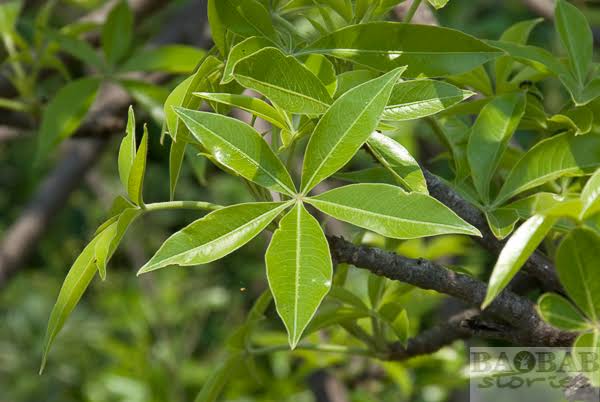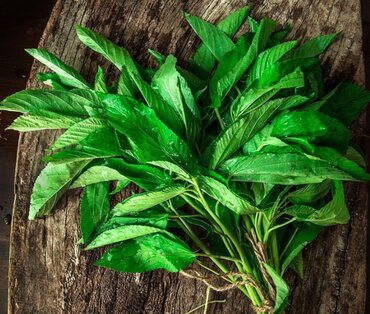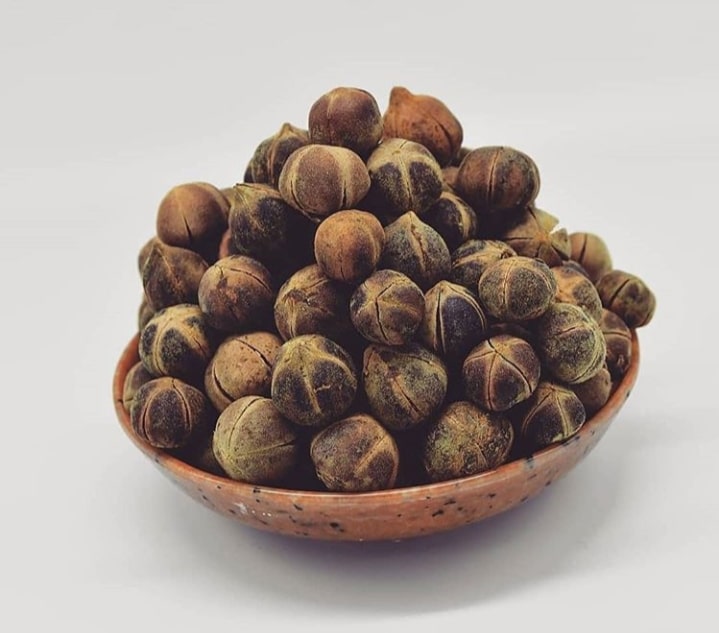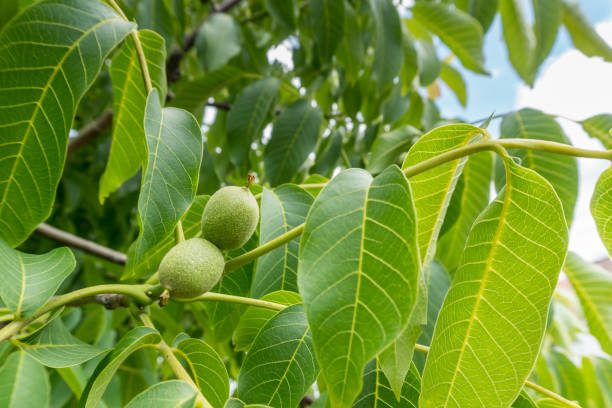Baobab is a deciduous tree that are native to Africa, Australia, and the Middle East. The bark, seeds, fruits, and leaves of the baobab tree has been used as food and medicine. However, this article will discuss the potential health benefits of baobab leaves.
Baobab leaves are highly nutritious and have been used traditionally in treating almost all kinds of diseases, such as Malaria, tuberculosis, anemia, dysentery, toothache, microbial infections, and fever.
In Nigeria, baobab leaves are used to prepare a delicacy known as Miyan Kuka, it is a popular meal in Northern Nigeria.
In 2009, the Baobab fruits were recognized as safe by the U.S. Food and Drug Administration (FDA). So the leaves are equally safe to consume.
7 Potential Health Benefits of Baobab Leaves

The health benefits of baobab leaves include:
1. Boosting the immune system
Baobab leaves contain vitamin C, which is an antioxidant that helps to fight infections by boosting your immune system. Vitamin C also prevents free radical damage caused by stress or pollution.
According to a study, baobab leaves is rich in vitamin C, with 40 g of vitamin C providing from 84 percent to more than 100 percent of the Recommended Daily Intake (RDI).
2. Improving digestion
Baobab leaves contain fiber that helps to promote digestion by regulating bowel movements and preventing constipation.
The fiber content also lowers bad cholesterol levels in the blood while increasing good cholesterol levels, which ensures proper blood circulation throughout your body.
In addition, baobab leaves have traditionally been used in Africa to treat diarrhea, constipation, and dysentery. The soluble fibers found in the leaves may exert prebiotic effects and promote the growth of healthy bacteria in the gut.
3. Preventing cancer
Baobab leaves are rich in antioxidants which help protect cells from free radical damage that can lead to cancer, heart disease, and premature aging.
It also prevents certain types of cancers because it boosts the production of white blood cells that help fight infections before they become cancerous tumors in our bodies or spread to other organs or tissues.
Furthermore, a 2008 study said that baobab leaves showed antioxidant activities.
4. Reduces inflammation
Baobab leaves contain anthocyanins, which help reduce inflammation by inhibiting enzymes called COX-2 that cause pain and swelling associated with arthritis and other inflammatory conditions such as gout or lupus.
Also, its anti-inflammatory properties help reduce swelling, soreness, and redness. They can also help relieve symptoms of osteoarthritis, such as stiffness in the joints, especially in the hands and feet.
5. It contains essential vitamins
Baobab leaves contain essential vitamins that work together to improve your overall physical health. The Vitamin C component of the leave improves digestive health by promoting the production of bile acids that aid digestion.
The leaf contains vitamin K, which helps in blood clotting, and is necessary for the formation of bones. Vitamin K also regulates bone mineralization and bone metabolism and helps to prevent osteoporosis.
The Vitamin B1 (thiamine) component of the Baobab leaves helps in the formation of new cells, especially muscle cells. Also, it provides energy for brain function and heartbeat.
The vitamin B2 (riboflavin) content in the leave is essential for growth and reproduction as well as the normal functioning of the nervous system. Also, baobab leaves contain vitamin B3 (niacin) which contributes to the maintenance of healthy skin and mucous membranes as well as the normal functioning of the digestive system.
6. Might improve bone and heart health
Baobab leaves contain relevant minerals such as potassium and magnesium, both of which are important for bone health.
Magnesium is also important for muscle relaxation and nerve function. Potassium helps lower blood pressure levels and reduces the risk of heart disease and stroke.
In fact, a 2021 animal study demonstrated that baobab leaf extract might have cardioprotective properties.
7. Rich in fiber
Fiber is important for healthy digestion and regular bowel movements. It also helps lower blood cholesterol levels and regulates blood sugar levels.
How to Use Baobab Leaves
The baobab leaf is usually boiled or dried before it is consumed. It can also be dried and crushed into powder form for ease of use in recipes such as soups or stews.
The leaves can be cooked with other vegetables or meat to increase their nutritional value and flavor.
It is advised not to consume the leaves at their raw stage, as it might cause some allergies.
Conclusion
Baobab leaves may be very healthy to consume. The potential health benefits of baobab leaves prove just that. Nonetheless, consult with your doctor first before using it for any form of treatment. if you notice allergies, discontinue immediately and report it to the doctor.
YOU SHOULD ALSO READ:
- 8 Health Benefits Of Cashew Tree Bark
- 7 Potential Health Benefits Of Justicia Carnea (Ewe Eje)
- 8 Potential Health Benefits of Pawpaw Leaves
- 7 Potential Health Benefits Of Hibiscus Leaves
- 5 Potential Health Benefits of Cassava Leaves
- Morinda Lucida (Oruwo Leaves): Health Benefits and Effects
- 6 Health Benefits of Hog Plums (Iyeye Leaves)
- 8 Possible Health Benefits of Yam Leaves
- 9 Health Benefits of Moringa Leaves and Ginger
Collins Nwokolo is a human physiologist, writer and health enthusiast. He loves writing helpful articles on health and fitness, which he enjoys sharing with everyone.









